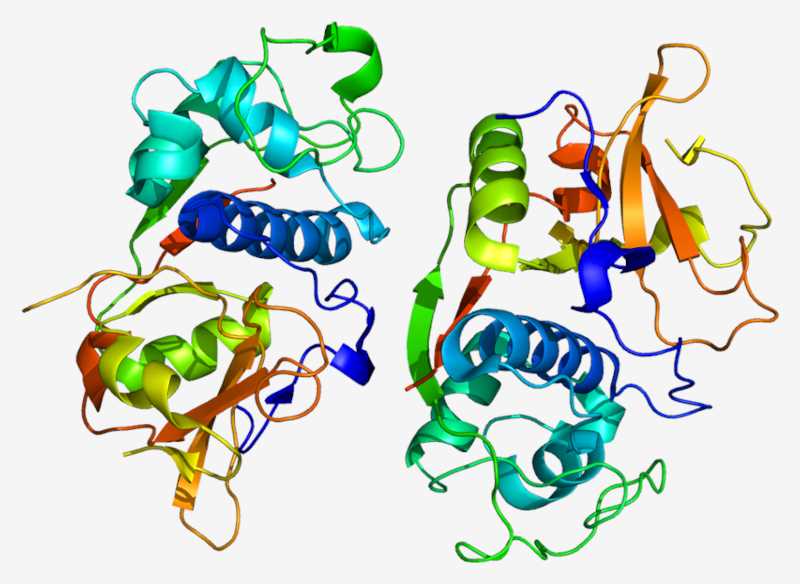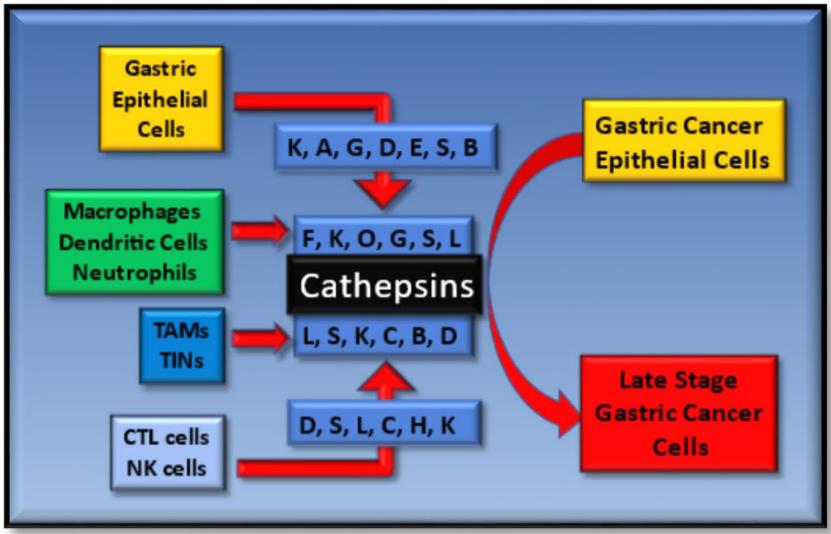NAA Services for Anti-CTSF Antibody
Cathepsin F (CTSF) has been implicated in the invasion and metastasis of gastric cancer (GC). It can be recognized by autologous cytolytic T lymphocytes to elicit humoral and cellular immune responses, leading to the production of anti-CTSF autoantibodies. Equipped with first-in-class technologies and abundant experience, Creative Biolabs has developed a series of innovative NAA platforms, which enable us to successfully identify a wide range of NAA associated biomarkers for diseases diagnosis and therapeutic monitoring. We are confident to offer fast and convenient NAA services to help you get a milestone development in your NAA project.
Background of CTSF
Cathepsin F (CTSF) is one the cathepsins, that are cysteine proteases from the papain family that are responsible for protein breakdown in lysosomes. The structure of CTSF is characterized by a C-terminal domain similar to the pro-segment of cathepsin L-like enzymes, and an N-terminal domain predicted to adopt a cystatin-like fold, that shares structural similarities with cysteine protease inhibitors and could induce a tight regulation of the CTSF inhibitory activity. CTSF is ubiquitously expressed in several tissues with a higher expression in skeletal muscle and testis. Importantly, recent studies show that CTSF is found abundantly in several cancers, suggesting that this enzyme could be involved in tumor progression.
 Fig.1 Structure of CTSF.
Fig.1 Structure of CTSF.
The Role of Anti-CTSF Antibody in Gastric Cancer
Gastric cancer (GC) is the second leading cause of cancer-associated mortality worldwide. The identification of novel biomarkers for carcinoma accurate diagnosis and novel therapeutic targets will improve the diagnosis, treatment, prognosis and prevention of GC. Due to the potential diagnostic and prognostic applications, natural autoantibody (NAA)-based biomarkers attract particular interests.
In human gastric cancer, anti-CTSF is one of the identified serum natural autoantibodies (NAA) with potential for diagnosis and prognosis of gastric cancer. It is documented that the CTSF mRNA level is associated with tumor differentiation, depth of tumor invasion, and lymph node metastasis. What's more, CTSF downregulation can efficiently inhibit apoptosis and promote the proliferation of GC cells. The association between CTSF and the growth and apoptosis of GC cells shows great clinical significance, suggesting that CTSF may function as a tumor suppressor in GC and maybe a potential therapeutic target in the treatment of GC.
 Fig.2 Role of cathepsins in tumor metastasis process. (Tan, 2013)
Fig.2 Role of cathepsins in tumor metastasis process. (Tan, 2013)
What Can We Do?
Aided by our well-established platforms and experienced scientists, Creative Biolabs can offer anti-CTSF autoantibodies detection and identification services for the early diagnosis and prognosis of GC. At Creative Biolabs, we can use the most suitable methods to analyze the abundance of autoantibodies specific to the biomarker candidates, including but not limited to basic immunochemical methods (Enzyme-Linked Immunosorbent Assay (ELISA), LIPS, WB and dot blot) and high through-put methods with high flux and accuracy (autoantigen/autoantibody array, peptide array). Our one-stop NAA services extend from NAA detection, NAA profiling, to NAA epitope mapping. In addition, a variety of off-the-peg NAA products are also available for your benefit.
Why Choose Us?
➢ Industry leadership
Our industry-leading expertise in antibody discovery and therapy development can help you promote your NAA projects.
➢ Professional team and abundant experience
We have successfully completed a lot of antibody discovery cases, accumulating rich experience. Our scientists are specialized in regulatory knowledge and scientific applications specific to antibody development.
➢ Cost effective and after-sale service
Identification and detection of anti-CTSF autoantibodies are of great clinical importance to help the early diagnosis before the gastric cancer onset. Creative Biolabs is well-positioned to provide the largest portfolio of products and services about NAA. In addition, we also provide custom services to meet the client's specific demand. Please contact us for more information.
Reference:
- Tan, G.J.; et al. Cathepsins mediate tumor metastasis. World journal of biological chemistry. 2013, 4(4): 91.
Related Services:
- NAA Services for Anti-TERF1 Antibody
- NAA Services for Anti-HCC-22-5
- NAA Services for Anti-Peroxiredoxin VI
- NAA Services for Anti-KM-HN-1
- NAA Services for Anti-p90
- NAA Services for Anti-NT5E Antibody
- NAA Services for Anti-MAGEA4
- NAA Services for Anti-COPS2 Antibody

